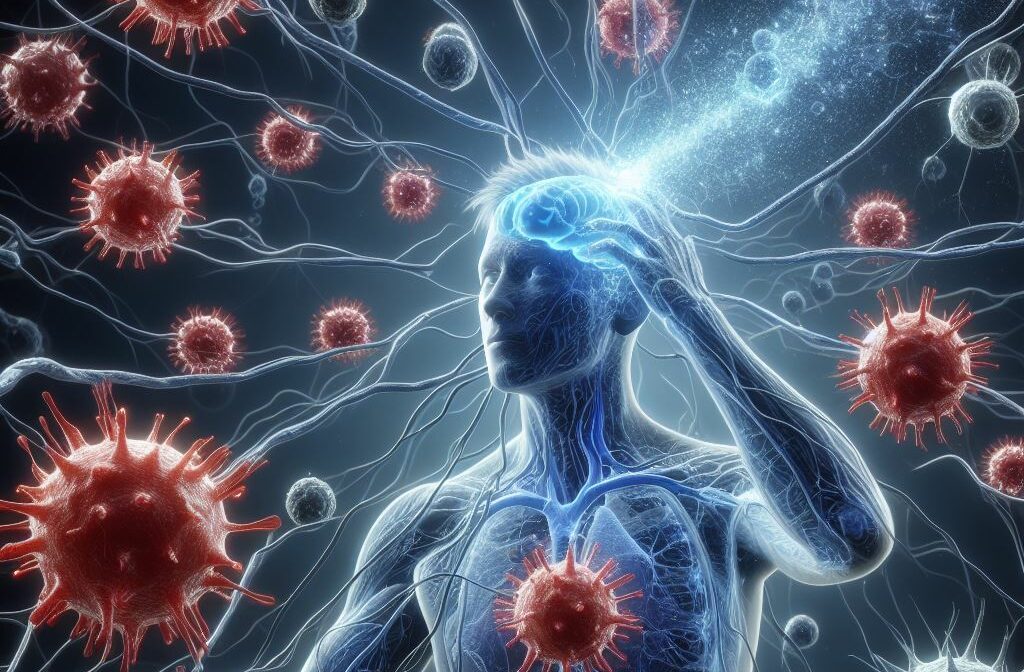What is multiple sclerosis disease?
Multiple sclerosis (MS) is a complex and often misunderstood neurological condition that affects millions of people worldwide. It is a disease of the brain and spinal cord, specifically, the central nervous system, where the immune system attacks the protective myelin sheath covering nerve fibres, resulting in communication problems between the brain and the rest of the body.https://my.clevelandclinic.org/health/diseases/17248-multiple-sclerosis. These attacks on the myelin sheath lead to the formation of sores or lesions. When these lesions become inflamed, it triggers an episode referred to as a relapse. The period between two relapses is known as remission, which can last for an extended period. In some cases, a second or subsequent relapse may never occur.
The signs and symptoms of multiple sclerosis can vary and depend on the extent of nerve damage, as well as which nerves are affected by the disease. Some individuals with MS may lose the ability to walk independently or entirely, while others may experience long periods of remission without any new symptoms.
Multiple sclerosis disease symptoms
Early signs and symptoms of multiple sclerosis can include:
- Fatigue: One of the most common early symptoms of MS is unexplained and severe fatigue.
- Vision problems: These may include blurred vision, double vision, or eye pain. Optic neuritis, inflammation of the optic nerve, is a common early symptom.
- Numbness and tingling: Sensations of numbness or tingling in the face, body, or extremities can occur.
- Muscle weakness: Weakness in the arms or legs can make it difficult to perform everyday tasks.
- Balance and coordination issues: MS can affect your balance and coordination, leading to problems with walking or clumsiness.
- Muscle spasms and stiffness: You may experience muscle spasms, cramps, or stiffness, particularly in the legs.
- Problems with speech and swallowing: Some people with MS may experience difficulty speaking or swallowing.
- Pain: MS can cause various types of pain, including neuropathic pain (nerve pain) and muscle pain.
- Cognitive changes: Cognitive dysfunction can occur, leading to memory problems, difficulty concentrating, and changes in problem-solving abilities.
- Bladder and bowel problems: MS can affect the control of your bladder and bowels, leading to urinary urgency, incontinence, or constipation.
- Emotional changes: Depression, anxiety, and mood swings are common among people with MS.
It’s important to note that these early signs and symptoms are not exclusive to MS and can be indicative of other medical conditions. If you or someone you know is experiencing these symptoms, it’s essential to consult a healthcare professional for a thorough evaluation and diagnosis. A neurologist is typically the specialist who diagnoses and manages MS. Early diagnosis and treatment can help manage the condition and improve the quality of life for individuals with MS.
Types of multiple sclerosis
MS is not a one-size-fits-all condition; it comes in several different forms. Understanding these types can shed light on the diverse experiences of people with MS:
1. Relapsing-Remitting MS (RRMS): This is the most common form of MS, characterized by periods of symptom flare-ups (relapses) followed by partial or complete recovery (remissions). These episodes can vary in duration and severity.
2. Primary Progressive MS (PPMS): In PPMS, symptoms gradually worsen over time without clear relapses and remissions. It accounts for around 10% of all MS cases and tends to affect individuals later in life.
3. Secondary Progressive MS (SPMS): SPMS typically develops in individuals who initially had RRMS. Over time, they experience a steady worsening of symptoms, with or without periods of relapses.
4. Progressive-Relapsing MS (PRMS): PRMS is the least common form, characterized by a steady decline in function with occasional flare-ups.
Innovative Treatments
While there is no cure for MS, there have been remarkable developments in treatments that can help manage the condition and improve the quality of life for those affected:
- Disease-Modifying Therapies (DMTs): These medications can help reduce the frequency and severity of relapses in RRMS and SPMS. Newer DMTs have been developed, offering more personalized treatment options and improved safety profiles.
- Stem Cell Therapy: Stem cell transplantation has shown promise in some cases, particularly in aggressive forms of MS. This treatment involves replacing the immune system with one that doesn’t attack the central nervous system.
- Symptom Management: A range of therapies and medications are available to manage specific MS symptoms, such as fatigue, muscle spasms, and pain. Physical therapy, occupational therapy, and lifestyle adjustments can also play a crucial role in symptom management.
- Precision Medicine: As our understanding of the underlying mechanisms of MS deepens, there is growing interest in personalized or precision medicine approaches. This involves tailoring treatments to an individual’s unique genetic and immune system characteristics.
- Neuroprotective Therapies: Emerging research is focusing on protecting and repairing damaged nerve cells in MS. Neuroprotective therapies aim to slow down or halt the progression of the disease.
- Digital Health Solutions: Advances in technology have led to the development of digital tools and apps that help individuals with MS manage their symptoms, track their health, and connect with healthcare providers remotely.
As we know, multiple sclerosis is a complex condition with various forms and a range of symptoms. While there is no cure, ongoing research and innovative treatments are providing hope for better management and improved quality of life for those living with MS. As we continue to learn more about this condition, we can look forward to even more promising developments in the future.
Elena

